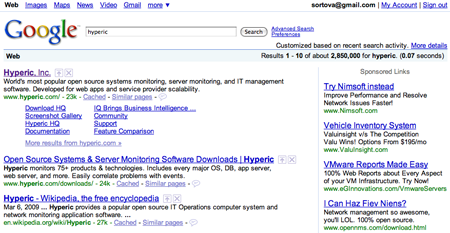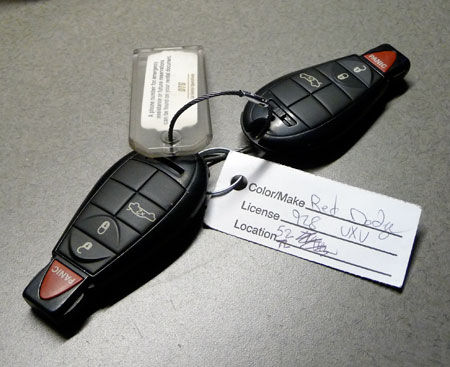Our commercial clients are awesome. One reason for this (besides their inherent awesomeness) is that since The OpenNMS Group does little to no marketing, our clients are self-filtering. First, they actually have to find out about OpenNMS (and unlike the industry press which often neglects to mention us, it seems that they can type “open source network management” into Google). Next, they will have to understand the value of 100% open source software. Third, they need to determine if OpenNMS is right for them.
Ben sent me a link to a great video that demonstrates a lot of the problems I used to experience when deploying commercial software.
Now, this doesn’t mean that we’re immune to such “relationship issues”. Since we aim to replace products from HP, IBM, BMC and CA in the enterprise, those buyers are used to dealing with commercial vendors. If the opportunity is large enough, commercial companies think nothing of putting an engineer on a plane and flying them out for a couple of days to install the product in the hopes that the client will purchase it. Since they sell licenses, they can make it up on the “back end” as the initial and yearly maintenance costs are so large that they can gamble on a number of such trips and make money if only one closes.
Since OpenNMS is free of license fees, what we sell is our time. Thus if we did this: flew out, installed OpenNMS, and showed you how to use it, there is no “back end” for us to recoup those costs. We would soon be out of business and OpenNMS would suffer for it.
It’s hard to get that across sometimes. While it rarely comes close to the examples in the video, it is not unusual that we’re asked to negotiate on our prices or to provide days (if not weeks) of free consulting. For the latter we have a number of services products to help either see if OpenNMS is a right fit for the environment (Getting to Know You) or get it installed and running (Greenlight). We price our support as affordable as possible, so telling me “hey, if you do this I’ll by a support contract” doesn’t help, as there is little margin in there to offset the costs.
As for discounts, we don’t believe in treating one customer different from another, and we don’t have the sales staff to go through a long negotiation process. We post our prices online, and while some commercial and fauxpen source companies do the same, in their case it is much more of a high end guideline than an actual price. I know in at least one of our clients a fauxpen source company cut their published prices by a tremendous amount just to get their product in the door.
We charge people for what they use. If you are a big company, we don’t think you should have to pay more just because you can. If you are a small company, we don’t think you should have to pay more because you might not be able to negotiate as well as a larger company. Of course, bigger companies need 24×7 and Ultra support contracts, and smaller ones don’t, so it all works out in the end.
I’m sure we’ve lost business by being somewhat inflexible about support pricing and pre-sales services. But it has kept us profitable. I think it is better to be smaller and profitable than larger and out of business.







